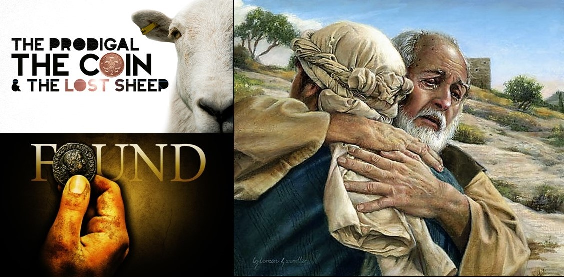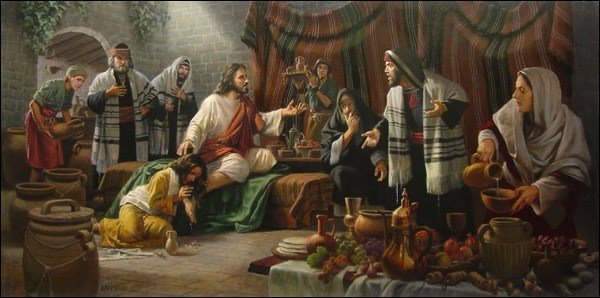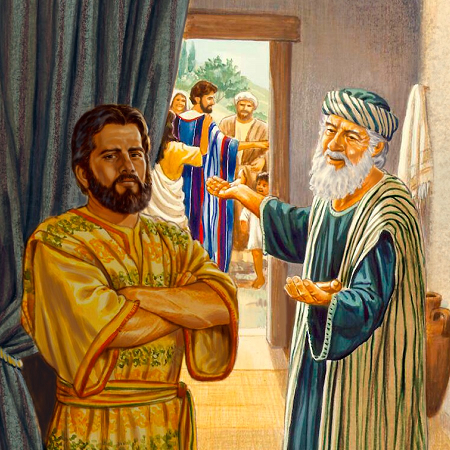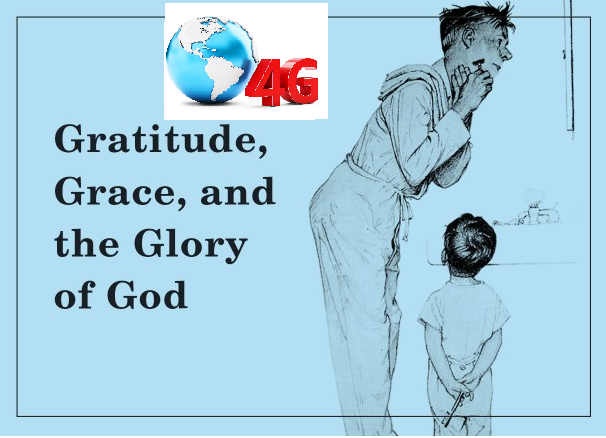Fourth Sunday in Lent
Joshua 5:9-12; 2 Cor. 5:17-21; Gospel of Luke 15:1-3.11-32

Preached by Msgr Philip Heng, SJ at Cathedral of Good Shepherd, Singapore on 28 March 2019
The Gospel of Luke chapter 15: 1-32 contains three parables: the parable of the lost sheep, the parable of the lost coin and thirdly, as in today’s Gospel that we just heard proclaimed, the “Parable of the Prodigal Son” or more correctly, “the Parable of the Lost Son and Brother”. Scripture scholars tell us that the common themes of these three parables are: the loss, the finding and the celebration.
The context of these parables are that tax collectors and sinners are approaching Jesus to hear him, and the scribes and the Pharisees were provoked to complain why does Jesus, “welcome sinners and eats with them?” In other words, the scribes and Pharisees, being self-righteous were puzzled and even upset at why Jesus was mixing with public sinners.

Before we condemn the scribes and Pharisees, let us first ask ourselves, if someone is known for his sins like he is treating his domestic helper badly, or migrant workers cruelly, or is guilty of being corrupt and promoting pornography and infidelity in marriages, would we wish to be identified as a friend of the person, and seen mixing with such people?
If not, then “Are we also not guilty of self-righteousness of the scribes and Pharisees?” Should we then not draw wisdom from Jesus who proclaims that we should make a distinction between the sinner and the sin? It is in such a context that Jesus proclaimed the three parables.
As in today’s Gospel of the “Lost Son and Brother” let us first note that when the younger son asked his father for his share of the property, he was being very arrogant. His father is still alive and he does not even have the right to what he presumed belongs to him. His father, symbolising God our Father, was saddened by the demand, and even as he knew that the younger son would squander away the wealth, nevertheless, out of his respect of his son’s freedom, gave him what he demanded.
True enough, he took the money, left for a distant country and squandered it on a life of debauchery. And when there was severe famine, and when he was dying of hunger, he hired himself, even as a Jew, for the most degrading work of feeding pigs. In his suffering, he experienced a conversion of heart, and realised that if he were to humble himself and return to his father and admit that he had sinned, and asked to be hired as one of the workers, as he is no longer worthy to be his son, he would at least not die of hunger. So, he returned home.
We all know that even as the father was deeply saddened by his son’s sinful living, his love for his son remained and being deeply merciful he daily looked into the horizon, and lived in the hope of his son’s return. And so, when he saw his son even as he was far off, his heart was filled with great joy, and ran towards him and embraced him and kissed him tenderly.
And, without questioning him or let alone getting angry with him, and not even acknowledging his son’s expression of repentance and unworthiness of being his son, he immediately reinstated the dignity as his son, by putting on him the best robe, ring on his finger and sandals on his feet, and slaughtered the fatten calf for a great banquet, to rejoice his return home.
 We also hear of how the older brother when he found out what had happened, was furious at his father. He complained bitterly and contrasted how he had “slaved faithfully” for his father for all these years, and not received the simplest of celebration with his friends. So, he refused to join in the celebration. With much gentleness and mercy, his father tried to persuade him to see that what truly matter is not so much that his brother had sinned, but that he has returned home.
We also hear of how the older brother when he found out what had happened, was furious at his father. He complained bitterly and contrasted how he had “slaved faithfully” for his father for all these years, and not received the simplest of celebration with his friends. So, he refused to join in the celebration. With much gentleness and mercy, his father tried to persuade him to see that what truly matter is not so much that his brother had sinned, but that he has returned home.
My brothers and sisters in Christ, while we can see that this Parable of the Lost Son and Brother is about God our Father’s infinite Mercy for us, we can also see how both sons had no love for their father. The younger son, was arrogant, presumptuous and ungrateful for all the blessings that he has received from his father. The elder son, on the other hand was merely “slaving in obedience” and without any personal affection and love for his father.
There is a story of a farmer called Cain, who begged God for a great harvest and God granted his wish. Cain was very happy, and so he celebrated with his friends. However, during his celebration, realised that his neighbour, Abel, was having an even greater celebration. Upon further investigation, he discovered that Abel his neighbour was also celebrating because he had double the harvest that he had received!
Cain then pleaded with God, “Lord, could you increase the herd of cattle that I have? The Lord answered his prayers. But, then again, Cain realised that Abel’s cattle too had doubled in number!
Cain then asked the Lord for a son, and his wish was granted. Several months later, Abel had twin sons! By now, Cain began to see the pattern of God’s goodness to him; that it seems, every time he asked God for something, Abel would somehow also receive, but double the amount of what he received.
Finally, Cain asked the Lord that he be blinded in one eye. When God heard Cain’s request, God was deeply saddened and cried!
My sisters and brothers in Christ, in many ways, as the younger son in the parable was ungrateful to his father’s generosity, and unconditional love and mercy, Cain was likewise totally ungrateful to all the blessings that he had received from God. Instead of being happy and grateful at the abundant blessings and graciousness the Lord had granted him, Cain was unhappy with what he had received, because Abel was receiving double blessings of what he had asked from God.
Cain, in many ways was also behaving like the elder son in the Parable. He began to feel envy towards the blessings that Abel was receiving, and could no longer feel gratitude towards the Giver of the gifts. In his envy, Cain began to be over focused on the gifts instead of the Giver.
And, worse still, when his envy was unchecked, it developed into an evil intention that knew no bounds. He began to ask for the destruction of his neighbour, Abel. Cain was even willing to be blinded in one eye, so that his neighbour Abel could be blinded in both eyes, and thus not be able to enjoy the abundant blessings that he has received.
My brothers and sisters in Christ, as I conclude, let us remind ourselves that in today’s Parable of the Lost Son and Brother, we unlike the younger son in the Parable, are each first called to reaffirm and renew our faith in God. As such, you and I are each challenged to open our hearts to receiving God’s infinite Mercy. That regardless of how much we may have failed and fallen into sin and rejecting God’s Love, God our Father is always forgiving and merciful, insofar as we, like the younger son, is able to admit and repent humbly for the sins we have committed, and are willing to return home to Him, and allow Him to embrace us in His Merciful Love.

Second, let us also be reminded that, also unlike the elder son, let us be more fully conscious that in all the good that we do, or the many sacrifices that we make, let us do so, out of love for God, and not live our faith superficially, as though we are merely fulfilling obligations of God and the Church, like coming for Masses on Sundays, so that we can remain in His good books.
And finally, unlike Cain in our story who represents both the sons in the parable, let us also be reminded that we are each called to be grateful to God for all the abundant blessings that we receive from God our Father daily. Let us not get carried away with and be over focused on the gifts, talents, wealth, health and the many other blessings that we have received, and FORGET the GIVER of the gifts and blessings.
This is because ingratitude as in the story of Cain can turn the blessings we receive into a self-centered envy that can destroy relationships and even our relationship with God. And, if we lose our relationship with God, then we would have lost the most precious possession of our lives.
- Ref: Story adapted from: The Chain of Love, Essays for Daily Living; Joseph A.Galdon,S.J.; Cacho Hermanos,Inc; 1993; pp.73-78
Msgr Philip Heng, S.J.

